On 30 October, in Budapest, the Central Romanian National Council was established. After settling in Arad, on 2 November, this new power centre required all Romanians from Transylvania establish county and village national councils in every relevant ward. One of the first to be established was the Romanian National Council of Alba Iulia. This was not simply a local administrative institution. The exercise of power during the preparation of the Great National Assembly conferred it important competences and achievements for all Romanians.
Arad was followed very swiftly by Alba Iulia: on 4 November, the Romanian National Council of this city was established. Its leadership as well as the professional composition of its members, provides an image of the elites of the Romanian community, which numbered 5,170 individuals in a total population of 11,600.
Ioan Teculescu, who had been the Orthodox Archpriest of Alba Iulia since 1901, was elected President of the Council. He was supported by the Greek Catholic Archpriest, Vasile Urzică, as Vice-president. The third cleric of the of the group, Florian Rusan, later became the administrator of the Orthodox Archpriest District of Alba Iulia. Lawyers constituted the most numerous group, which included Dr Zaharia Muntean, Dr Camil Velican (who became mayor of the city on 20 November), Dr Ioan Marciac, Dr Rubin Patiția, Dr Ioan Colbazi, and Marius Străjan, an advocate going through his probation. One week later, Dr Ioan Pop, president of the local organisation of the National Romanian Party, arrived from the front. From 11 January 1919, he became the first prefect of Alba County and, from 1926, president of the Alba County organisation of the National Peasant Party. Other members of the National Council included the physician Dr Alexandru Fodor, the pharmacist Virgil Vlad, and the president’s, Horia Teculescu, a student of Literature.
The first task of the Romanian National Council of Alba Iulia was the administrative and military organisation of the territory under its jurisdiction. By the end the end of November 1918, national councils and national guards were organised in all villages.
To fulfil its main attributes, namely the maintenance of order and the solving of current problems of the community, the council was structured in three specialised committees: organisational, military and housing.
On 15 November 1918, the Central Romanian National Council of Arad sent a general mandate to all county and commune councils in Transylvania and the Banat entrusting them the task of organising the election of delegates to be sent to the Great National Assembly, scheduled to take place on 1 December 1918. In this new situation, the Romanian National Council of Alba Iulia was tasked with two important missions: a local one and a central one, namely the organisation of the national assembly which was going to be held within its area of jurisdiction.
The Romanian National Council of Alba Iulia organised the elections in the Alba Iulia, Ighiu and Vințu de Jos electoral wards. Ioan Teculescu became president of Alba Iulia electoral ward and Camil Velican was secretary. Nine of the members of the Romanian National Council of Alba Iulia were elected delegates at the Great National Assembly.
The involvement of the council in the organisation of the national assembly was more complex and extensive. Good communication and cooperation between the local National Romanian Council and the Central Romanian National Council was necessary. This explains the presence of Iuliu Maniu in Alba Iulia, as well as advocate Ion Pop’s trip to Arad on 21 November, to request an advance payment of 50,000 Crowns to partially cover expenses for the coming event.
Three committees were established by the Romanian National Council of Alba Iulia: for organisation, reception, and accommodation of the participants. Advocate Zaharia Muntean was tasked with the publication of the newspaper Alba Iulia, the official publication of the council.
The political aspects of the Great National Assembly fell within the competence of the Central Romanian National Council. The local council was to solve individual issues, the most difficult being that of providing accommodation for participants. The committee in charge with this task received hundreds of letters and telegrams in which the expeditors announced their arrival or booked accommodation. Equally important was the problem of the security of the assembly, which the local council solved in collaboration with the Romanian Legion.
The activity of the National Romanian Council of Alba Iulia contributed to the smooth unfolding of the Great National Assembly, which did not encounter any incidents or obstructions. (V.M.)

